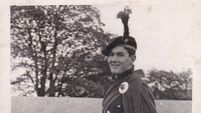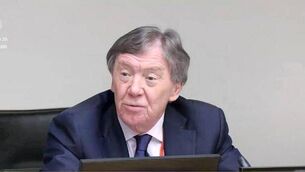Man not guilty of sexual exploitation

The trial was heard at Waterford Circuit Court.
A man in his 30s has been found not guilty of the sexual exploitation of a child. The man, who cannot be named for legal reasons, recently stood trial at Waterford Circuit Court. A jury found him not guilty after a three day long trial.
On a date in early 2020, the alleged victim, a girl in her mid-teens, was walking home from work when she was approached by the man. The man asked her for directions to a local shop. When she pointed out its direction he asked her if she would come with him. She said no and that she was going in the opposite direction.
Minutes after the first interaction, the girl was walking past a public house when the man stopped, her from the driver's side of a white jeep. He told the girl that she 'looked beautiful' and asked her if she wanted to get into his car and she declined.
She said: "He took his wallet out and asked would this change my mind." The witness told the court that the wallet contained money and a condom. She told the court: "I said no. He touched my arm and said was I sure. I was just trying to get out of the situation. I started walking and phoned my mam."
The girl's brother quickly came to meet her to make sure she was safe. She told the court that as she hurried away from the location, she saw the white vehicle drive by 'several' times.
Gardaí were alerted and quickly apprehended the suspect in his car on a major road. Three members of Gardaí told the court that the man said: "I'm sorry for what I done to that girl". However, they were challenged on their testimony by defence counsel, Gareth Hayden BL.
In court, Mr Hayden put it to the three Garda officers that his client had apologised for 'frightening' the girl but did not say he that he was sorry for what he had 'done'. He also asked if the road where the vehicle was stopped was busy. The Gardaí stated that the road was 'not that busy' at the time.
Gardaí searched the defendant and his vehicle. The defendant had two €50 notes on his person, but Gardaí did not find a wallet or condom in their search. The accused later told the Gardaí that he was lonely and was trying to strike up a conversation but did not 'stop' anyone. He said to Gardaí: "I told her she looked beautiful but she wasn't interested so I left. It is not an offence to strike up a conversation." He denied offering her money and told Gardaí that he would write the girl a letter of apology if they wanted.
CCTV was later obtained from the public house that showed a white vehicle driving in the area.
Mr Hayden suggested to the main witness that the defendant did not offer her money, or took out a wallet. She replied: "I was, 100%, shown a wallet." When Mr Hayden suggested to her that she was mistaken she said: "No, I'm definitely not mistaken."
Charted Forensic Psychologist, Dr Ríoghnach O'Leary, gave expert witness testimony at the trial. Dr O'Leary met with the defendant several years after the incident and assessed him as being neuro-divergent. In court, she described how people who are neuro-divergent take social interactions at face value and engage in repetitive actions.
Dr O'Leary stated that a neuro-divergent person's ability to engage in a back and forth conversation may be different to a neuro-typical person, and that they can be subject to the problem of 'double empathy'.
State Prosecutor Conor O'Doherty asked Dr O'Leary if the defendant had attended 'mainstream schooling' in both primary and secondary cycles. Dr O'Leary said: "That was his experience."
The mother of the defendant told the court her son had no friends and had kept to himself for most of his life, describing him as reclusive.
In the closing arguments, State Prosecutor Conor O'Doherty told the jury that the defendant was not on trial for having an 'inappropriate conversation' but for 'propositioning a child for purposes of exploitation.'
In summation, Mr Hayden described his client as 'socially inept' and had taken an overly literal approach in making connections with people. He told the jury that they had to be sure 'beyond a reasonable doubt' that the defendant was guilty. Mr Hayden told the jury that his client was honest with Gardaí and answered their questions: "He engages with Gardaí because he has nothing to hide."
After several hours of deliberation, the jury returned a 10/2 majority verdict of not guilty.






